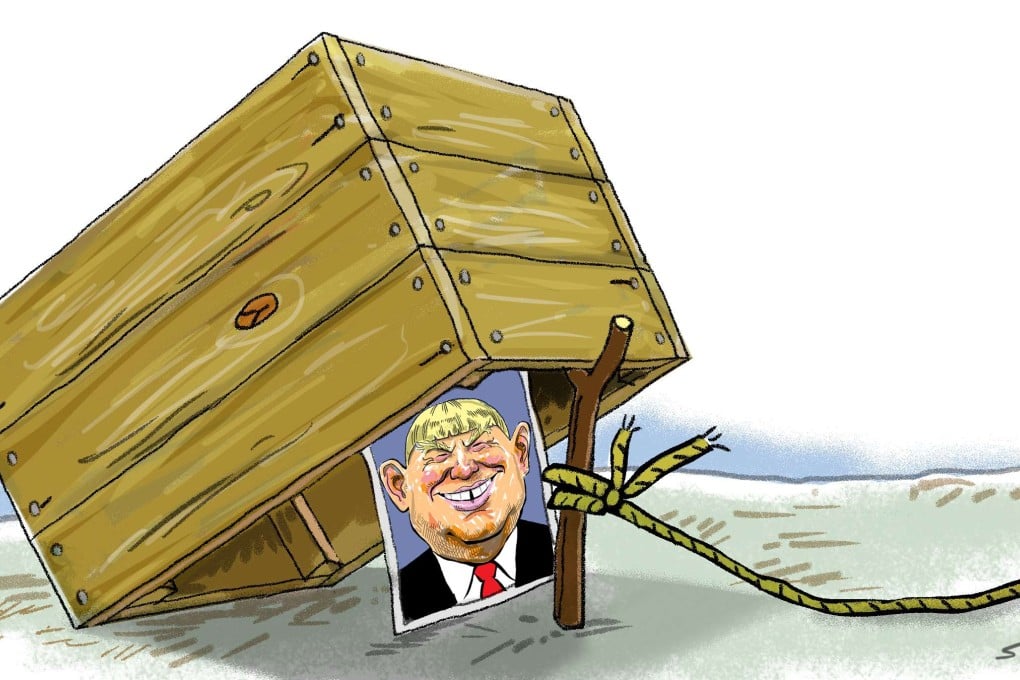China should beware the trap set by ‘dumb Trump’
Tom Plate says the US president-elect isn’t known for his intellectual prowess, but he is wily: Beijing should not be riled into doing something reckless by his purposely provocative views on ‘one China’


And so US president Bill Clinton, ever restless, orders Air Force One to fuel up for Zurich, where a Swiss military helicopter then lifts him, his then-teenage daughter Chelsea, and what seems like half his cabinet to the Swiss Alps village of Davos, where upwards of 1,500 world CEOs, government leaders, political and literary figures, and a handful of mere journalists assemble annually to mull over global issues and hobnob like excited kids at a preschool.
The first US president to appear at Davos while in office, Clinton makes thoughtful comments on not just the bright but also the dark side of globalisation.
Watch: President Bill Clinton’s remarks to the World Economic Forum in 2000
But it is his other appearance that day I remember best: a closed briefing for journalists, mainly from Europe; and though late, as usual, Clinton, with Chelsea in charming daughterly tow, hits it around with the media for a 90-minute back and forth. Halfway thorough the performance, I whisper to ask the journalist from Agence France-Press next to me of her impression of the US president. In a tone tinged with a touch of surprise, she says: “He’s very smart, isn’t he?” But of course he was; after all, as president of the United States, world leader, he had better be smart, right?
As president of the US, world leader, he had better be smart, right?

Chinese President Xi Jinping travels to Davos with a tough sell on his hands
For starters, Xi’s views generally seem more Clintonian than Trumpian. Although hardly unaware of the dark downsides of globalisation (roiling employment dislocation, structural equity, endless trade disputes, and so on), Xi accepts the inescapability of global interaction in this epoch of nano-second internet communication. This line contrasts with that of president-imminent Trump, who campaigned crudely against international trade regimes.